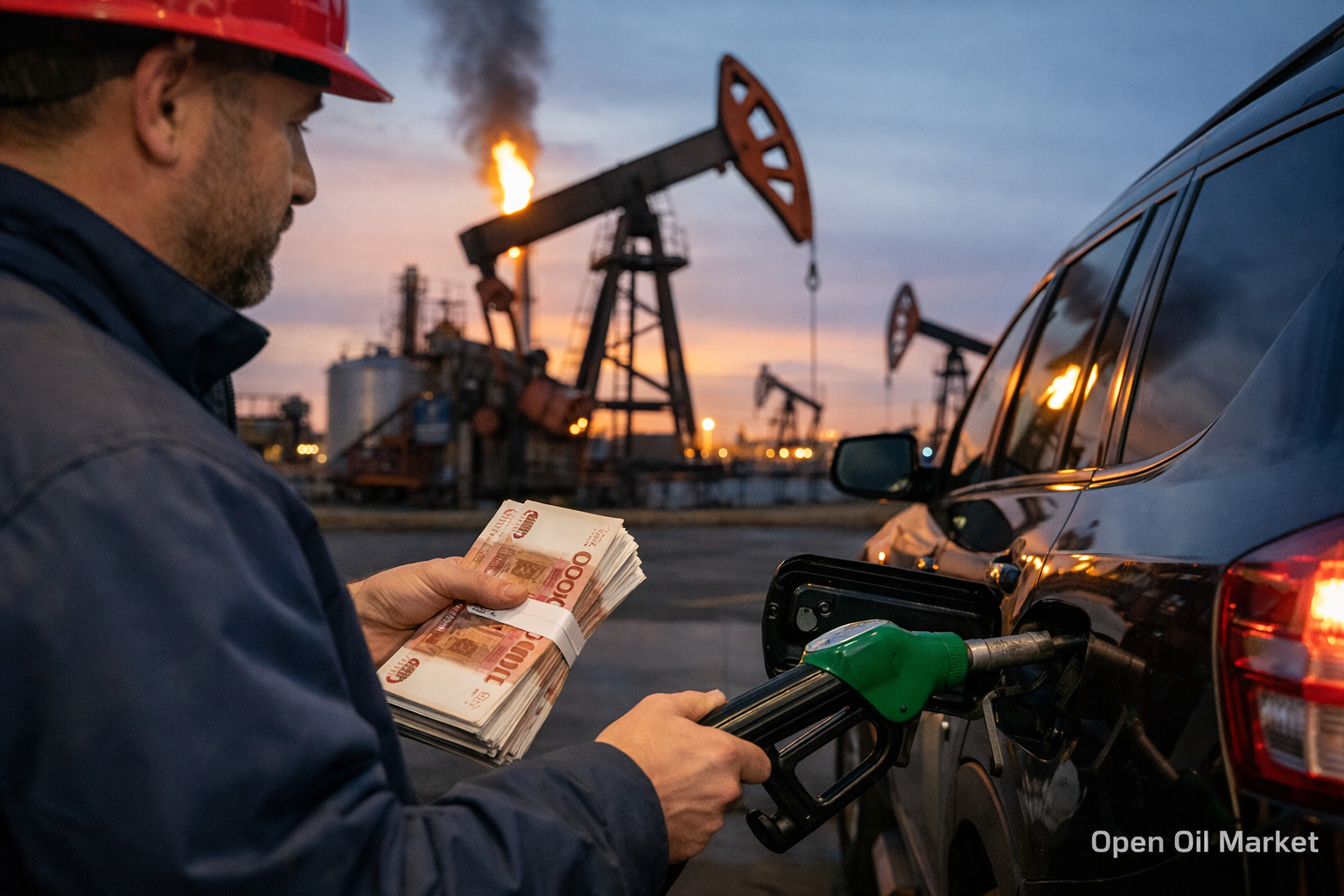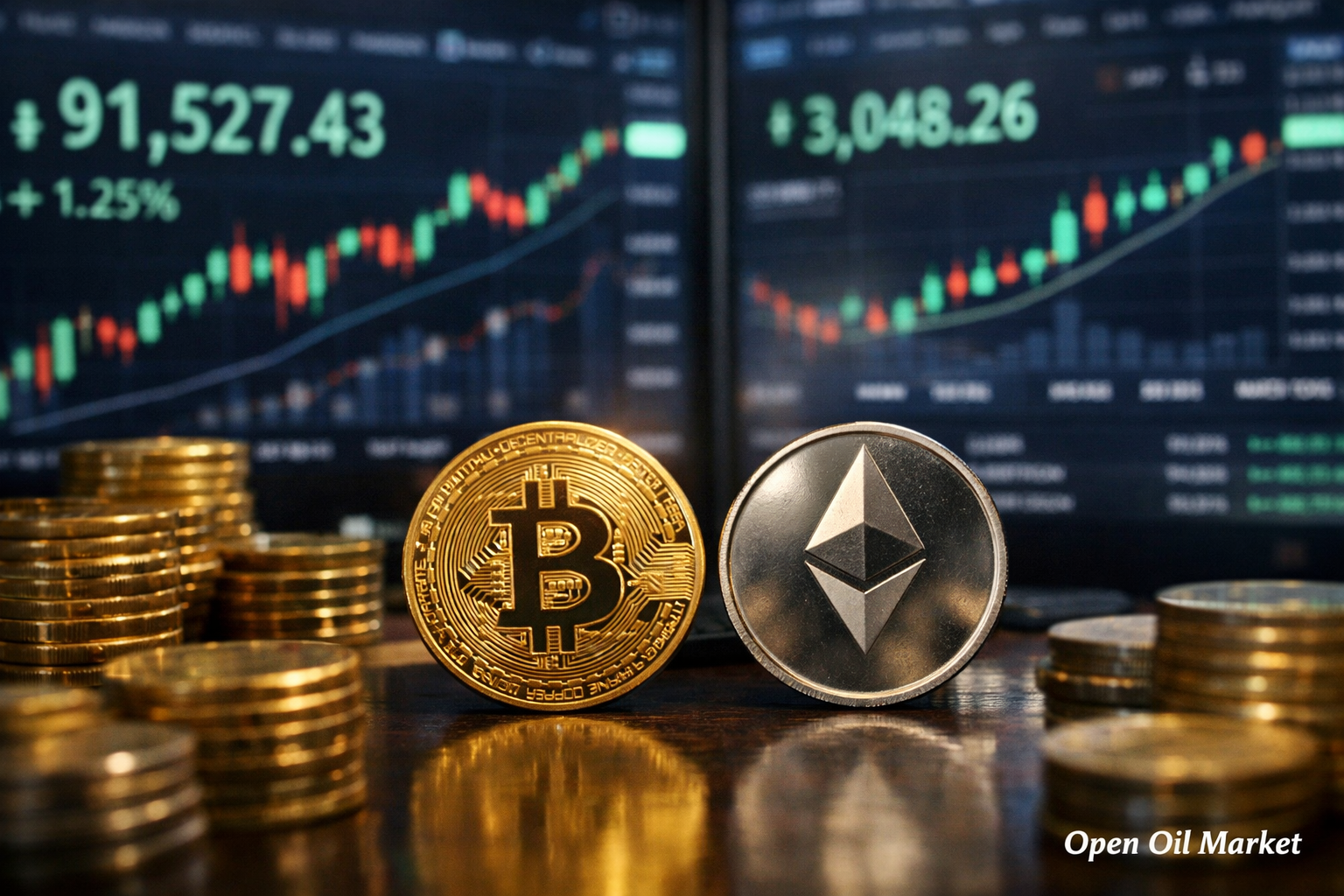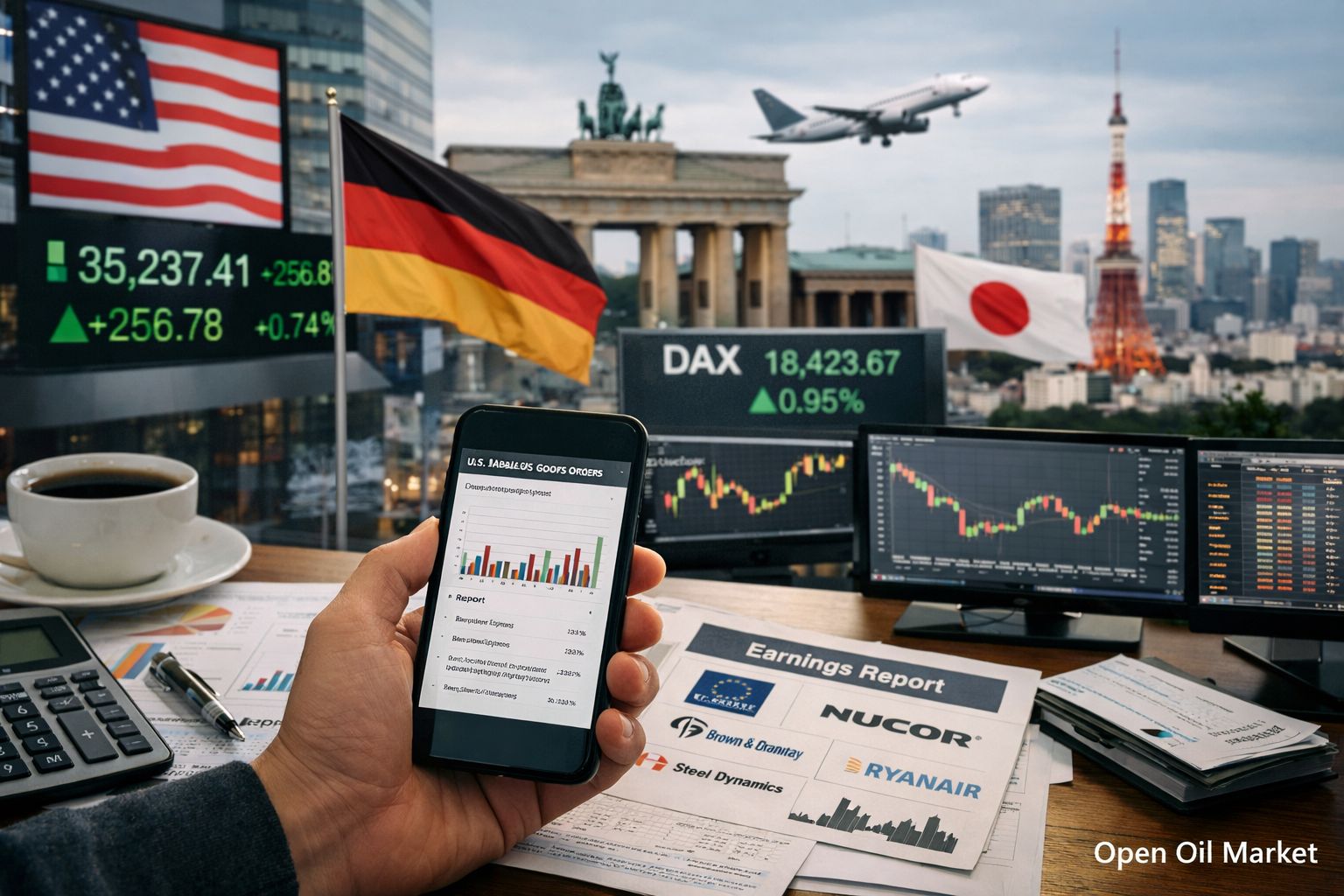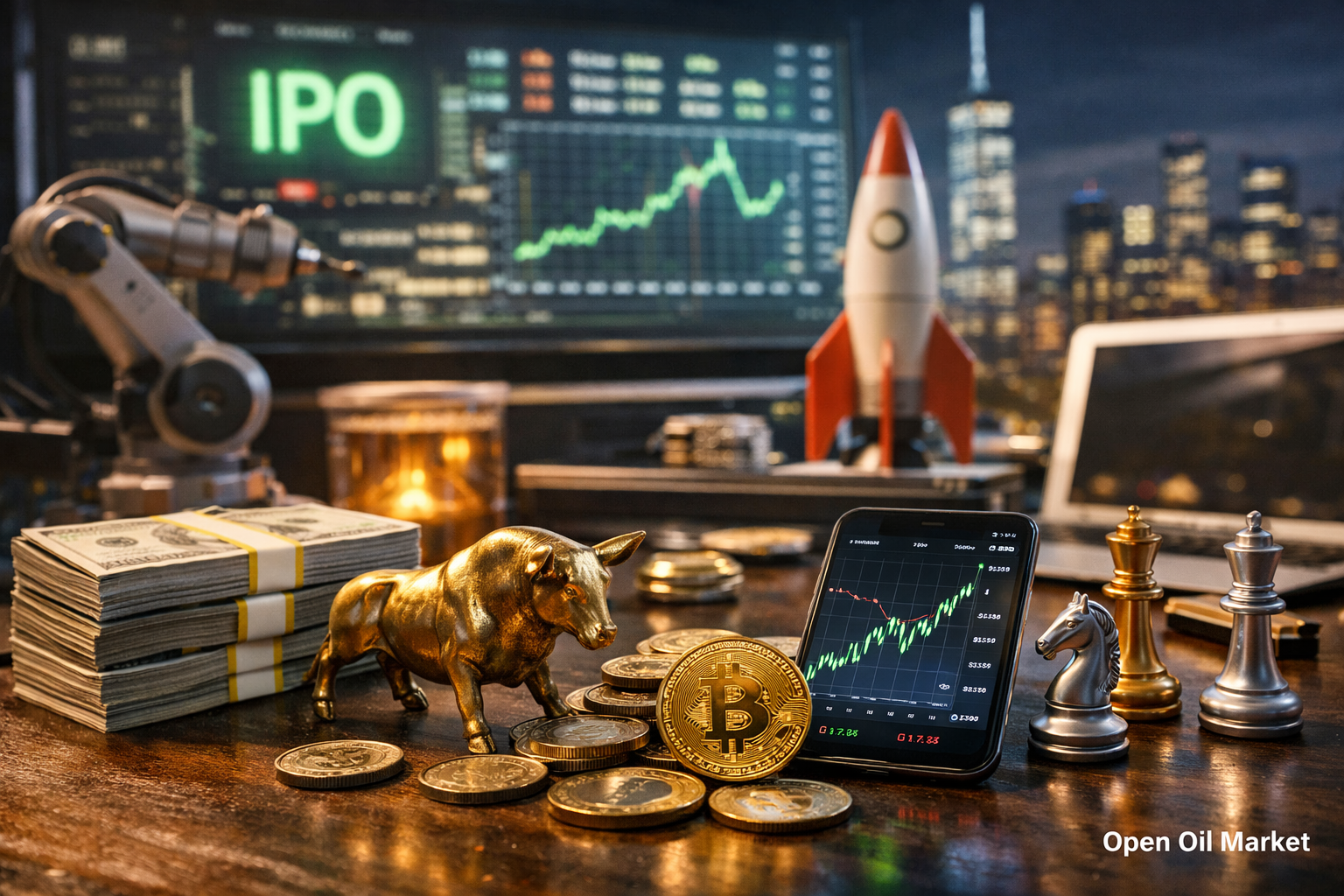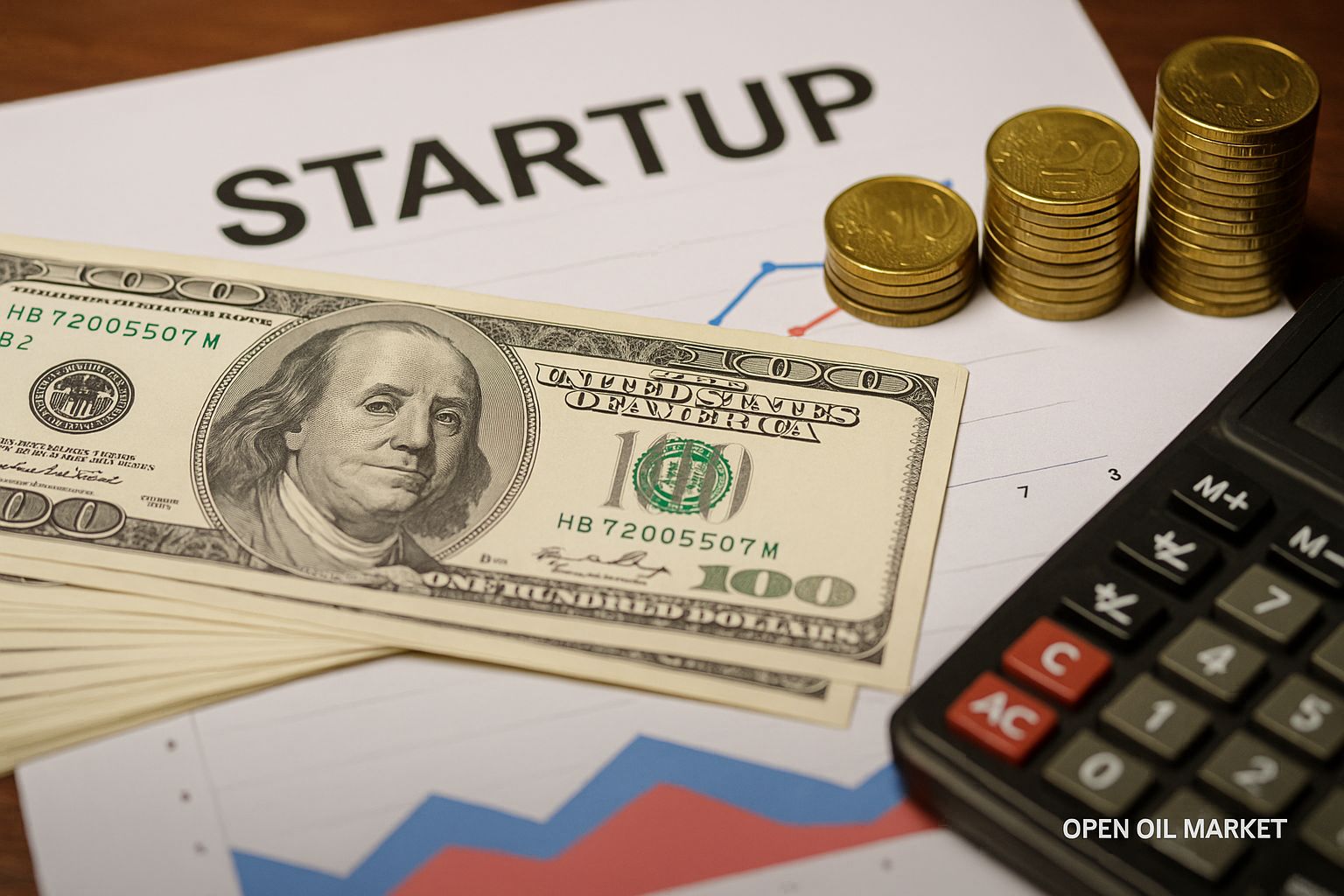
The Latest and Most Important Startup and Venture Investment News as of 25 October 2025. An Overview of Major Deals, Trends, New Funds, IPOs, and Investment Directions — from AI to Fintech.
As of the end of October 2025, the global venture capital market is showing consistent growth following a prolonged downturn in previous years. Investors are once again actively pouring capital into technology startups — record-breaking deals are being signed, and plans for IPOs are coming back to the forefront. Major players are returning with substantial investments. Consequently, private capital is confidently reinvigorating the startup ecosystem.
The increase in venture activity is evident across all regions. The United States continues to lead (especially in the field of artificial intelligence), while on the Middle Eastern front, the volume of investments has nearly doubled over the past year. In Europe, however, there have been reshuffles: Germany has for the first time overtaken the United Kingdom in the number of venture deals. India, Southeast Asia, and countries in the Gulf region are attracting record levels of capital amidst a relative slowdown in activity in China. The startup ecosystems in Russia and other CIS countries are also working hard to keep pace, despite external constraints. A new venture boom is emerging, although investors are still approaching deals selectively and cautiously.
Below are the key events and trends in the startup industry as of 25 October 2025:
- The return of mega funds and major investors. Leading venture capital funds are forming unprecedentedly large funds and increasing their investments, flooding the market with capital and enhancing risk appetite.
- Record funding rounds in the AI sector and new "unicorns." Extremely large investments are boosting startup valuations to new heights, particularly in the artificial intelligence segment.
- A revival in the IPO market. Successful public listings of several tech companies and new applications confirm that the long-awaited “window” for exits has reopened.
- Diversification of sectors for investment. Venture capital is flowing not just into AI projects but also into fintech, climate technologies, biotech, defence developments, and even crypto startups.
- A wave of consolidation: mergers and acquisitions (M&A). New major consolidations and strategic acquisitions are reshaping the industry landscape, creating opportunities for profitable exits and accelerated company growth.
- Local focus: Russia and CIS. New funds and initiatives are emerging in the region to support local startups, attracting investor attention despite restrictions.
- Measured optimism among investors. The market is experiencing a resurgence, yet participants are maintaining a balanced approach to startup valuations and avoiding excessive risk.
The Return of Mega Funds: Big Money Back in the Market
The largest investment players are triumphantly returning to the venture arena, signalling a new surge in risk appetite. The Japanese conglomerate SoftBank, for instance, has led one of the most significant rounds of the year, investing tens of billions of dollars into artificial intelligence. Sovereign funds from the Gulf states have also become active, pouring billions into tech projects and developing government mega-programmes to support the startup sector, establishing their own "tech hubs" in the Middle East. Simultaneously, dozens of new venture funds are being created worldwide, attracting significant institutional capital for investments in high-tech sectors.
Leading venture firms in Silicon Valley are expanding their market presence. The funds have accumulated enormous reserves of uninvested capital (“dry powder”) — hundreds of billions of dollars ready to be deployed as confidence returns. The influx of such “big money” is enhancing liquidity in the startup market, providing resources for new funding rounds and supporting the growth of evaluations for promising companies. The return of mega funds and major institutional investors intensifies competition for the best deals while instilling confidence in the industry regarding the continued influx of capital.
Record Investments in AI and New "Unicorns"
The field of artificial intelligence remains the main driver of the current venture upswing, displaying record levels of funding. Investors are keen to secure positions among the leaders of the AI market, directing colossal funds toward the most promising projects. In just the past few weeks, several mega-rounds have been announced: the American startup Crusoe, which deals with infrastructure for AI data centres, raised about $1.38 billion with a valuation nearing $10 billion; significant rounds have also been closed by foundational AI model developers Anthropic (at $13 billion) and xAI (around $5.3 billion). Such deals elevate company valuations to unprecedented heights and emphasise the frenzy surrounding AI startups.
Importantly, investments are not limited to end-user AI applications but are also flowing into infrastructure for them — the market is willing to finance even the “shovels and picks” for the new gold rush of artificial intelligence. Consequently, the current investment boom is spawning a plethora of new "unicorns" (startups worth over $1 billion). Experts caution about the risks of overheating certain projects; however, the venture capital appetite for AI startups remains unabated.
The IPO Market Comes Alive: A Surge in Public Offerings
The global IPO market is emerging from a prolonged lull and picking up speed. In Asia, Hong Kong is spearheading a new wave of listings, with several large tech companies successfully debuting on the stock exchange in recent months, collectively raising billions of dollars. The situation is also improving in the US and Europe: several highly valued startups have made successful public debuts, demonstrating strong investor interest and rising share prices in the initial trading days.
The largest venture IPOs of the third quarter of 2025 include:
- Chery Automobile – a Chinese car manufacturer with one of the highest valuations at IPO this year.
- Figma – an American design platform that launched shares with an estimated valuation of around $15–20 billion.
- Klarna – a Swedish fintech unicorn (BNPL service) that has successfully entered the public market.
- Netskope – an American cybersecurity company that completed its listing with a multi-billion-dollar valuation.
In total, more than a dozen IPOs of venture-backed companies with valuations exceeding $1 billion took place on global exchanges in the third quarter, significantly higher than a year earlier. The success of these listings opens long-awaited opportunities for venture funds to exit profitably, allowing them to realise gains and redirect released capital into new projects.
Diversification of Investments: Beyond Just Artificial Intelligence
In 2025, venture capital inflows are encompassing an increasingly broader array of industries, extending beyond just the AI craze. Following last year’s downturn, fintech is rebounding: large funding rounds are occurring not only in the US but also in Europe and emerging markets, stimulating growth in new digital financial services. Investor attention is being drawn to climate and "green" technologies amid a global trend toward sustainability.
- Fintech: The fintech sector is receiving large-scale funding across various regions, fuelling the development of new payment and banking solutions.
- Climate and AgriTech: Projects in renewable energy, eco-tech, and agri-tech are attracting record investments, reflecting the priority of the ecological agenda.
- Biotech and MedTech: Breakthrough developments in pharmaceuticals and digital health are again in the spotlight of venture capital, as the sector emerges from a phase of declining evaluations.
- Defence Technologies: Investors are also displaying heightened interest in startups within the defence and space sectors.
- Crypto Startups: A partial restoration of trust in the crypto market has enabled some blockchain companies to secure funding once again.
Thus, venture capital is diversifying across industries, making the entire startup ecosystem more resilient and reducing the risk of overheating in any one segment. The expanded focus of investors on different areas signifies that, in addition to AI, they are willing to support fintech innovators, "green" startups, med-tech platforms, and other promising sectors.
Market Consolidation and M&A Transactions
High valuations of startups and stiff competition are fuelling a wave of consolidation within the industry. Major mergers and acquisition deals are once again taking centre stage, redistributing roles in the market. Tech giants are actively eyeing leaders among startups, looking to secure key technologies and teams.
In recent months, several acquisitions have attracted industry attention. For instance, Google has agreed to acquire the Israeli cybersecurity startup Wiz for approximately $32 billion — a record sum for the Israeli market. The activity in the M&A space indicates market maturation: mature startups are either merging with one another or becoming targets for acquisition by corporations, while venture investors are finally gaining opportunities for long-awaited profitable exits.
Russia and CIS: New Funds and Initiatives
Despite external constraints, efforts are underway in Russia and neighbouring countries to develop the local startup ecosystem. In 2025, several new venture funds have been announced: for example, the Nova VC fund with a volume of 10 billion rubles aimed at investing in IT startups, while the Kama Flow investment company has launched a fund of a similar size focused on late-stage investments. Major corporations and banks are also establishing corporate venture funds targeted at domestic tech projects.
In addition to financing, accelerators, startup schools, and other initiatives are being launched to support entrepreneurs. Local startups are gradually drawing attention not only from Russian investors but also from foreign partners from friendly countries. While the market volumes of Russia and the CIS still lag behind global leaders, the region is striving to keep pace with global trends. Venture investors here are being selective and focusing on niches where local teams possess competitive advantages.
Measured Optimism: Conclusions and Future Prospects
As we approach 2026, the startup and venture investment industry is entering a phase of revival. The global influx of capital, a series of new "unicorns," successful IPOs, and strategic deals indicate a restoration of confidence in the market.
Simultaneously, ecosystem participants remain cautious. Investors are taking a more considered approach to project evaluations and are keen to avoid excessive risk. This balanced approach instils optimism: the venture market is growing more sustainably, opening new opportunities for investors and founders worldwide.

